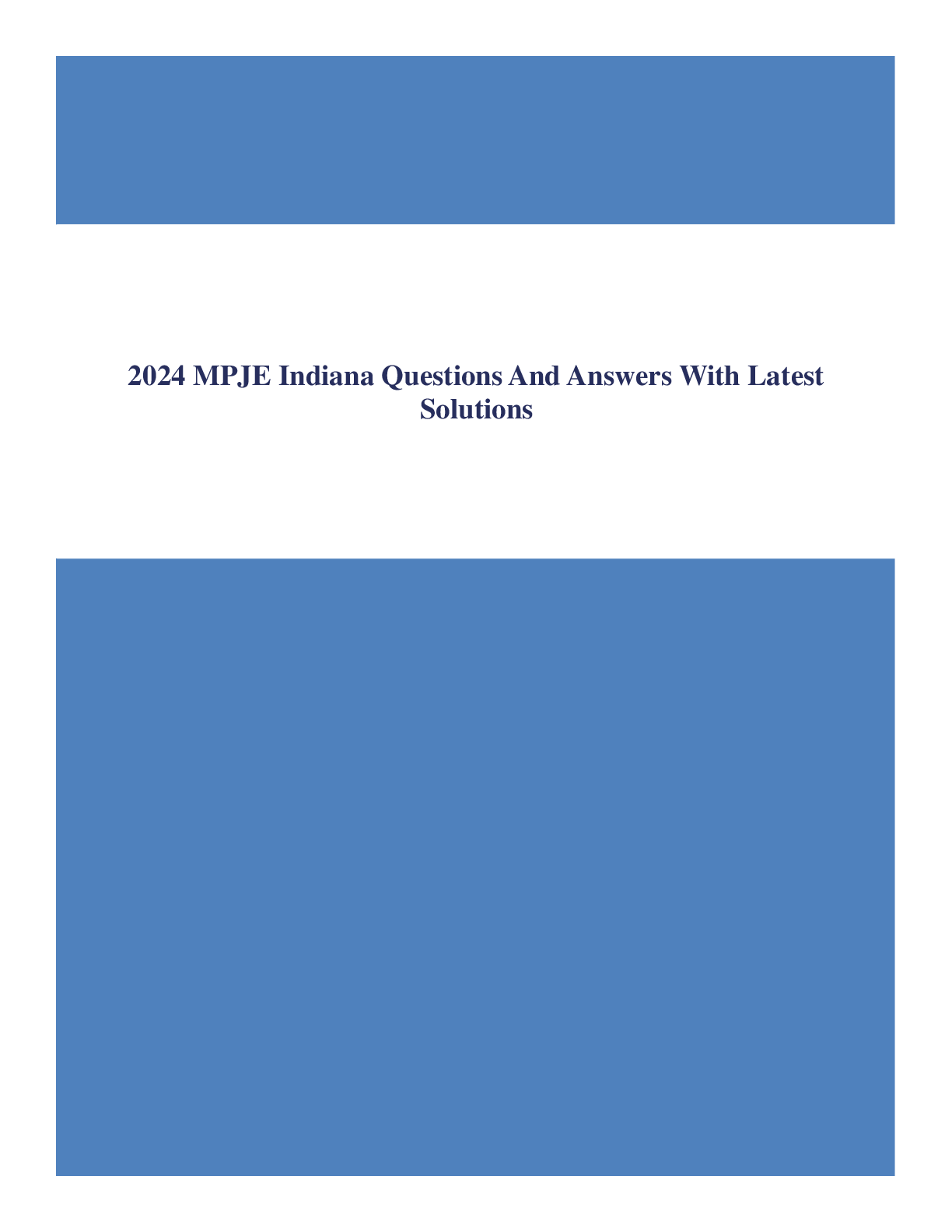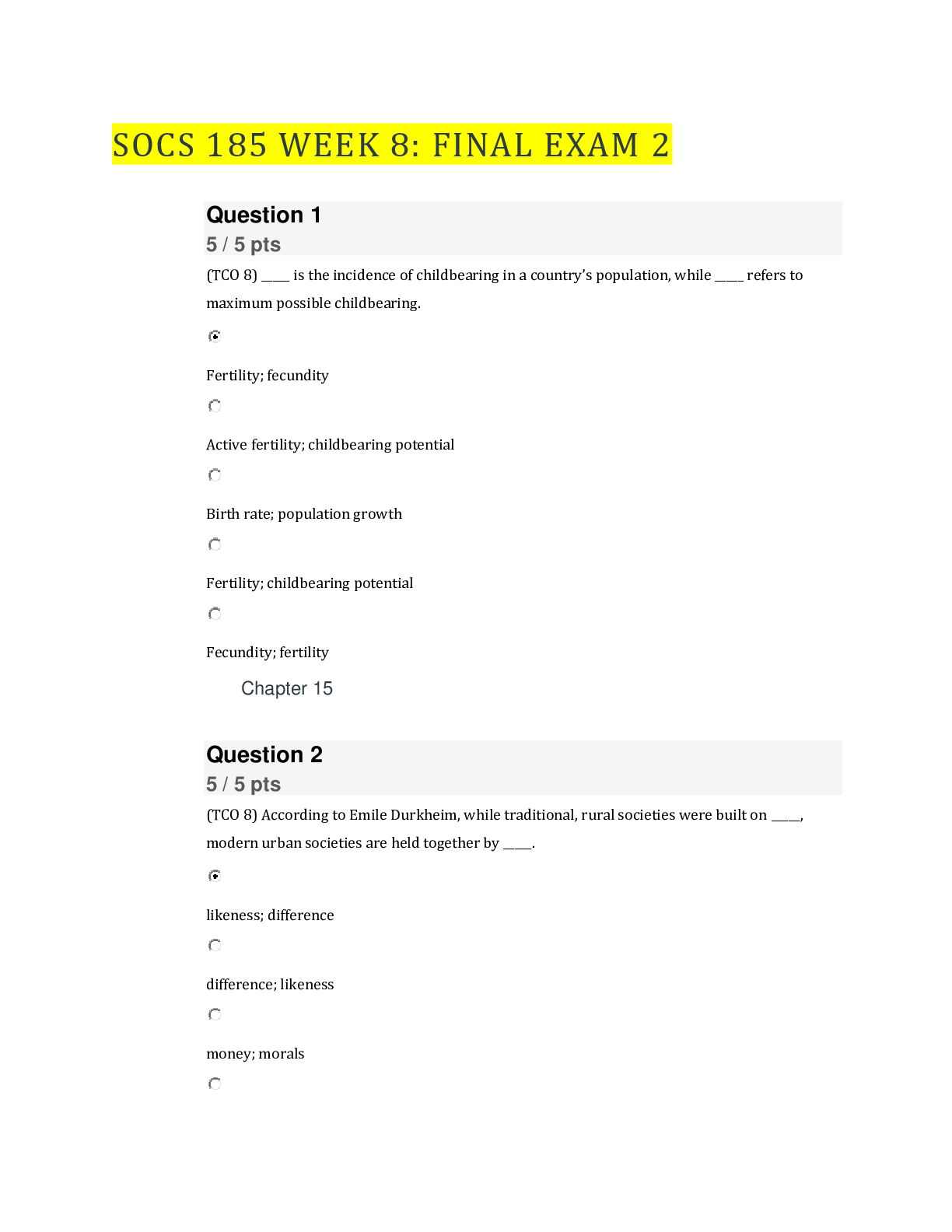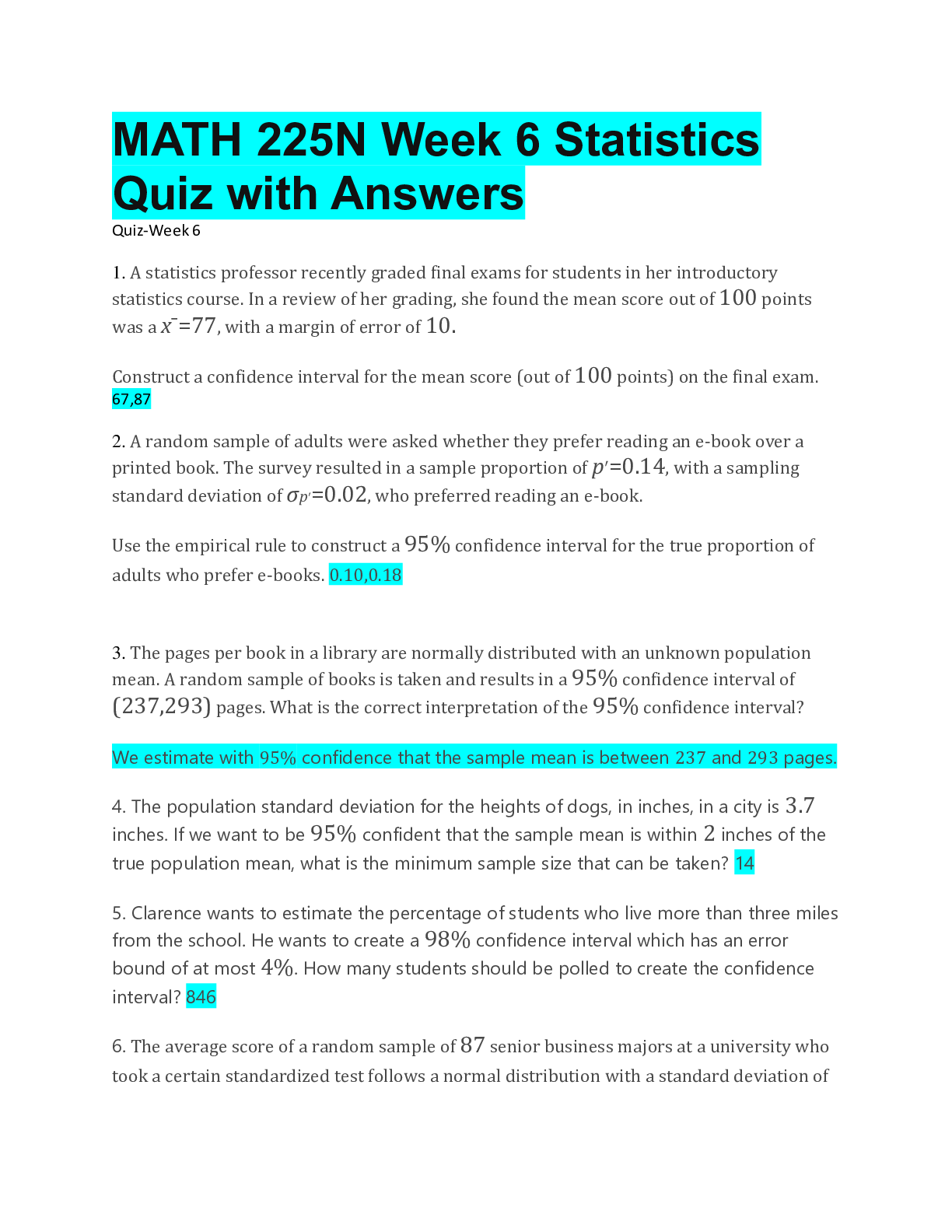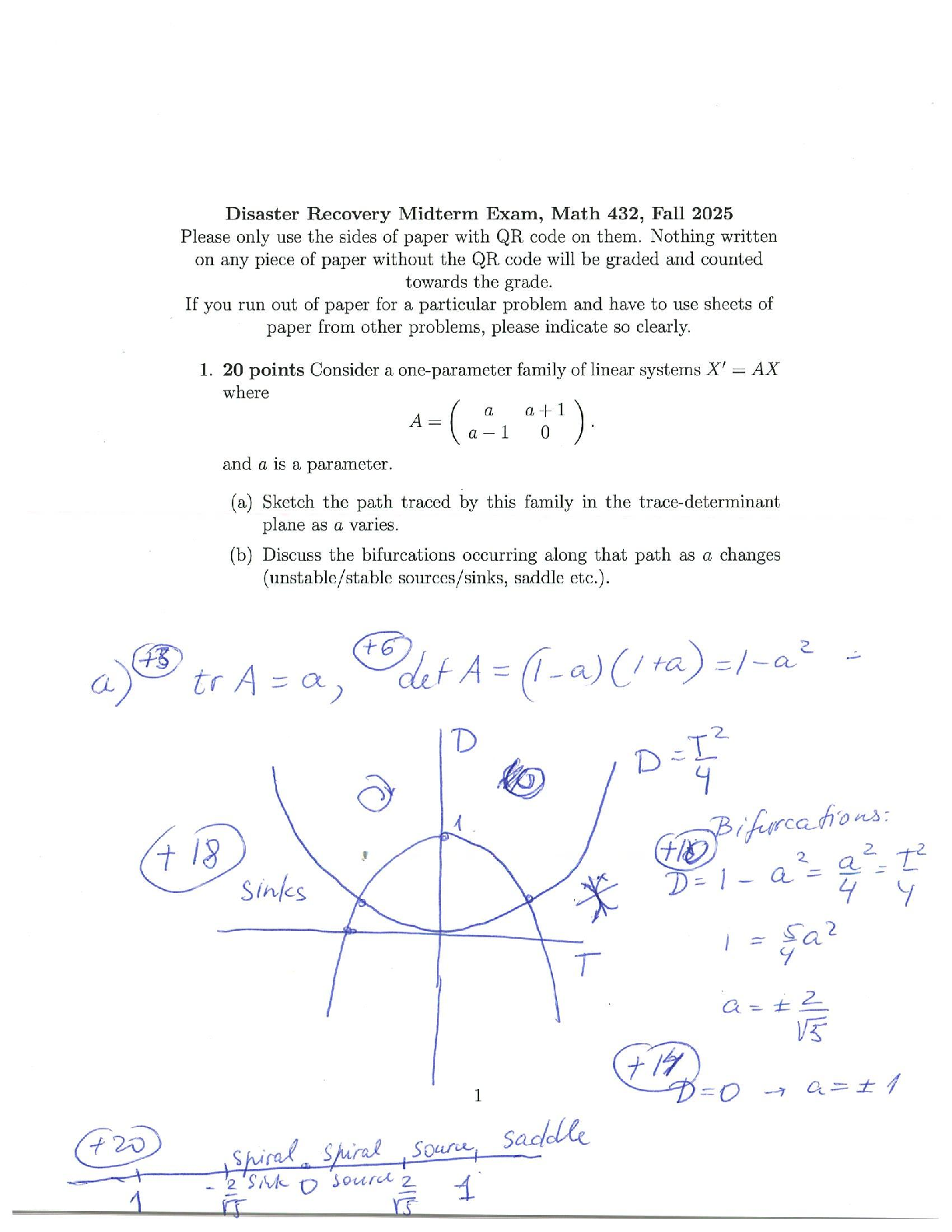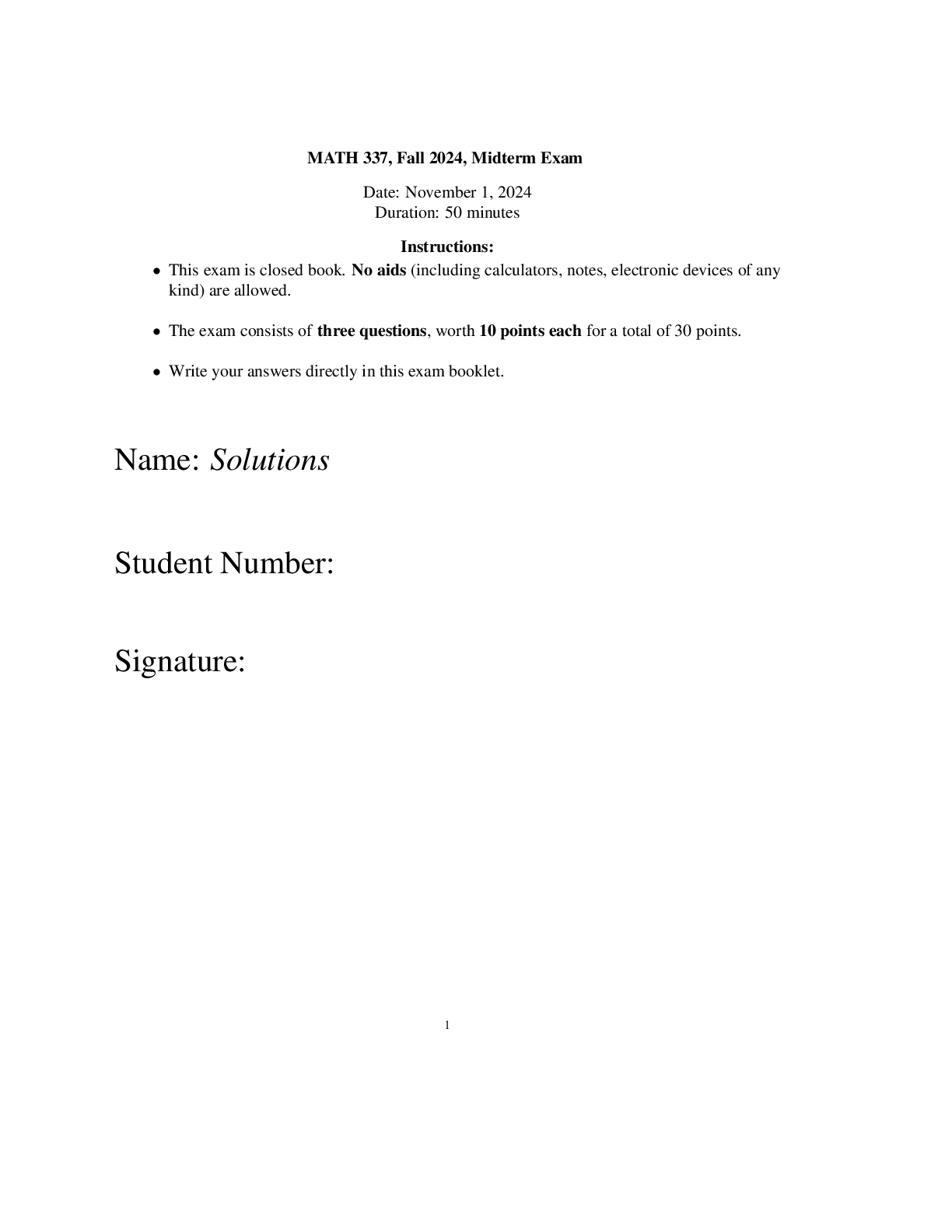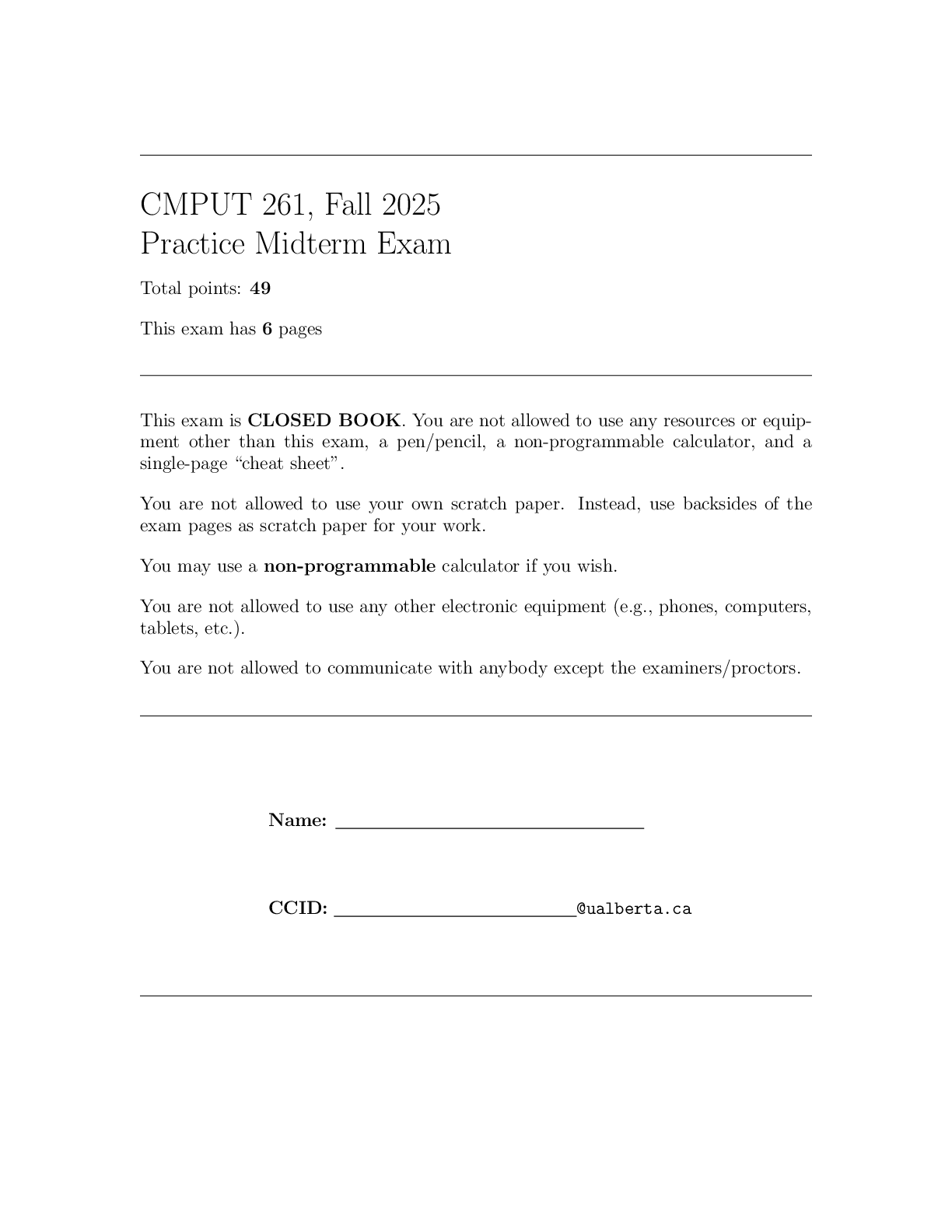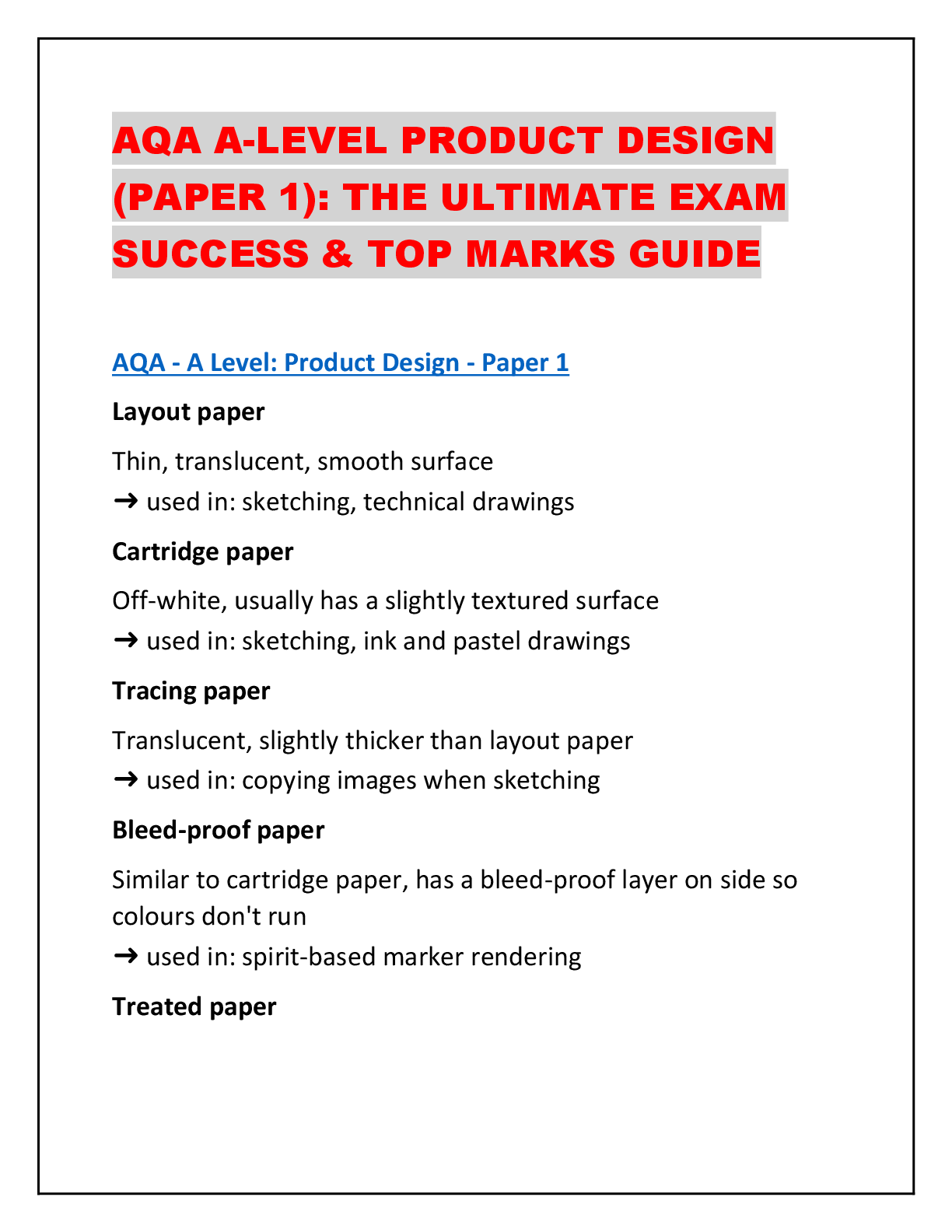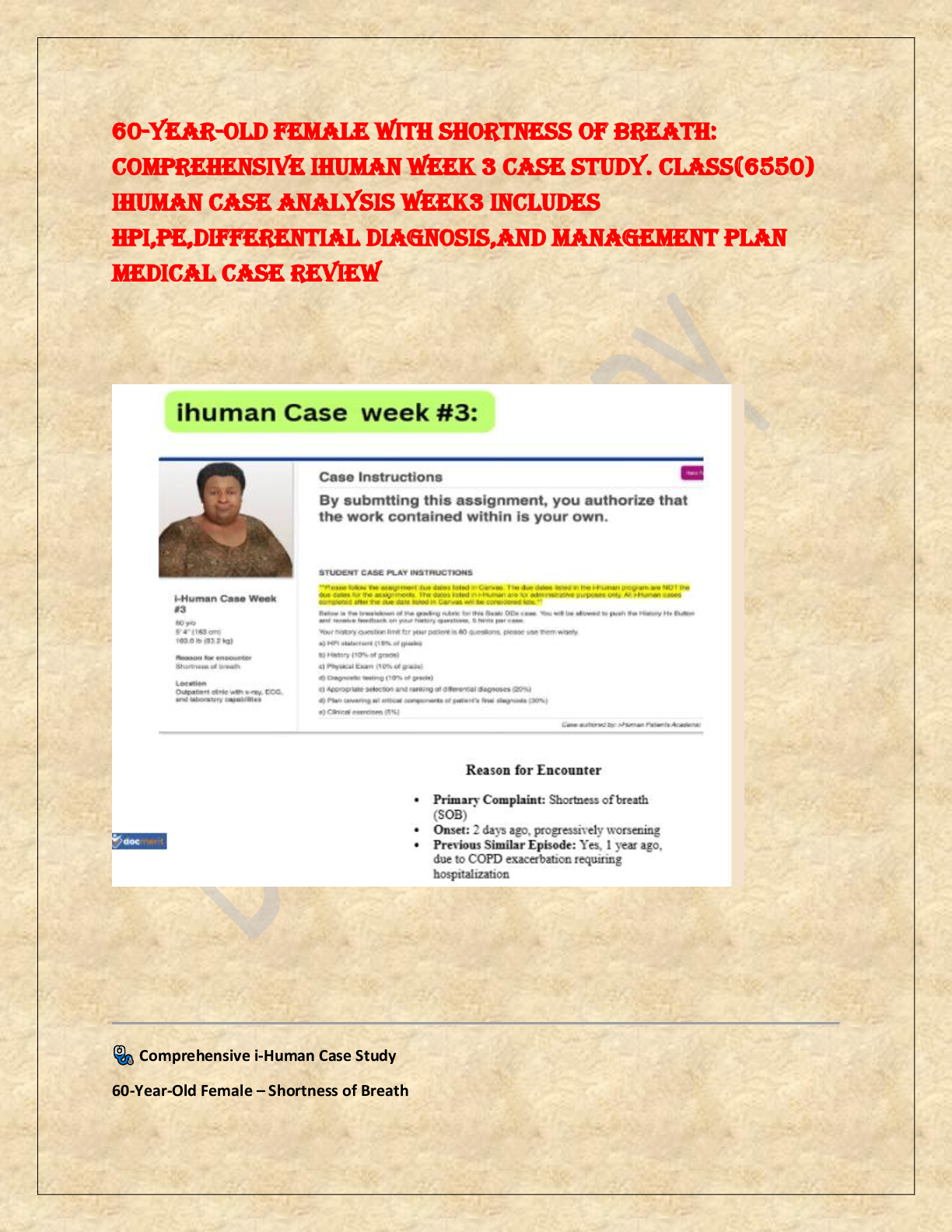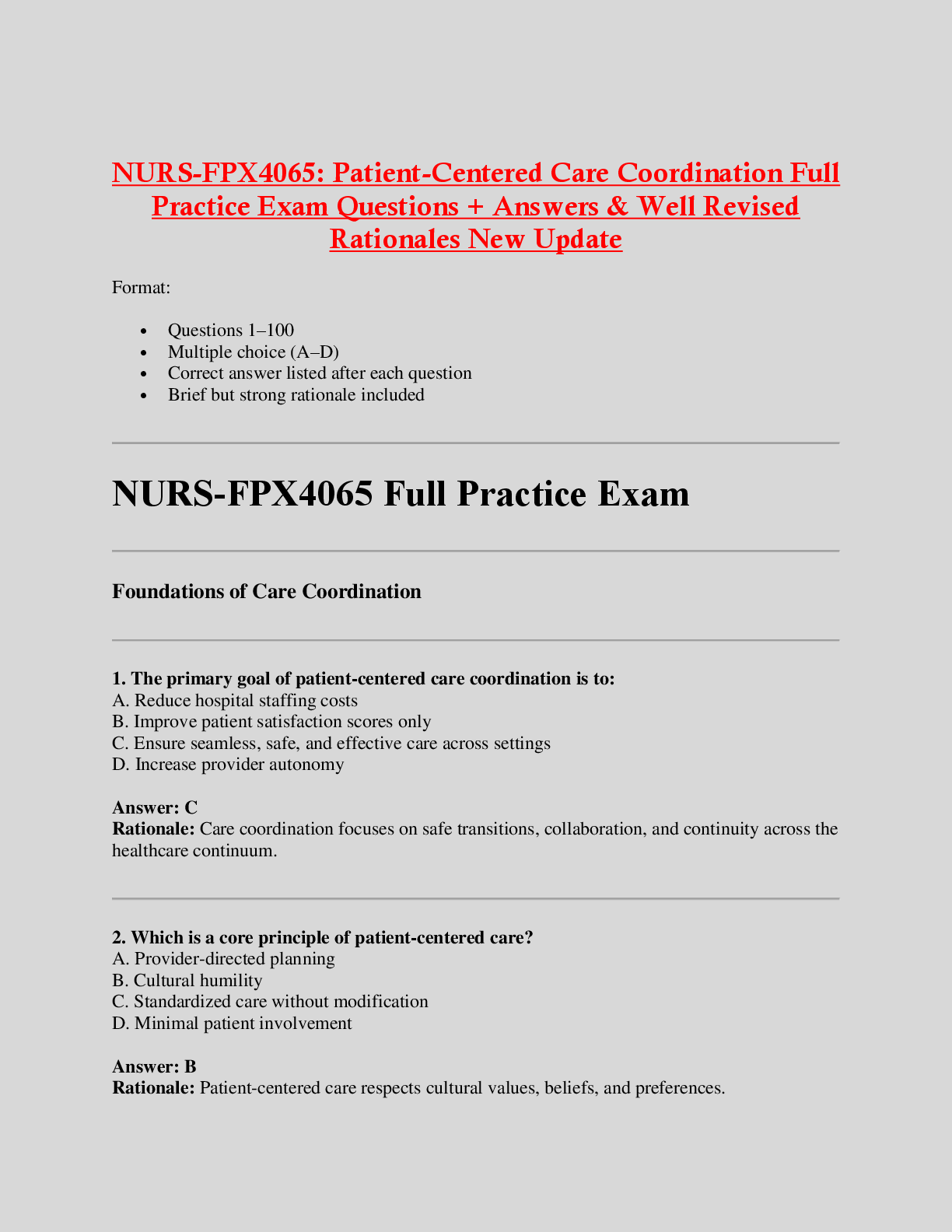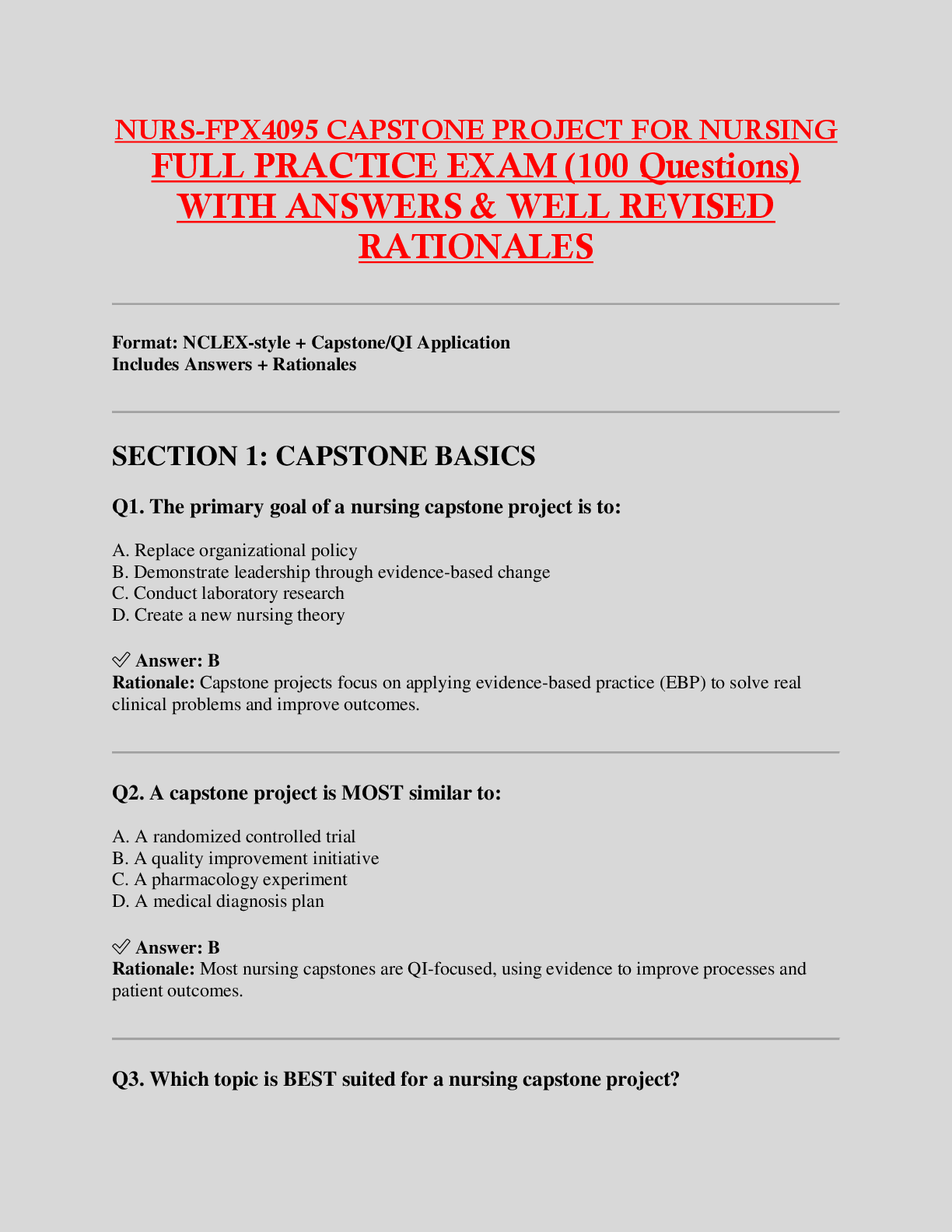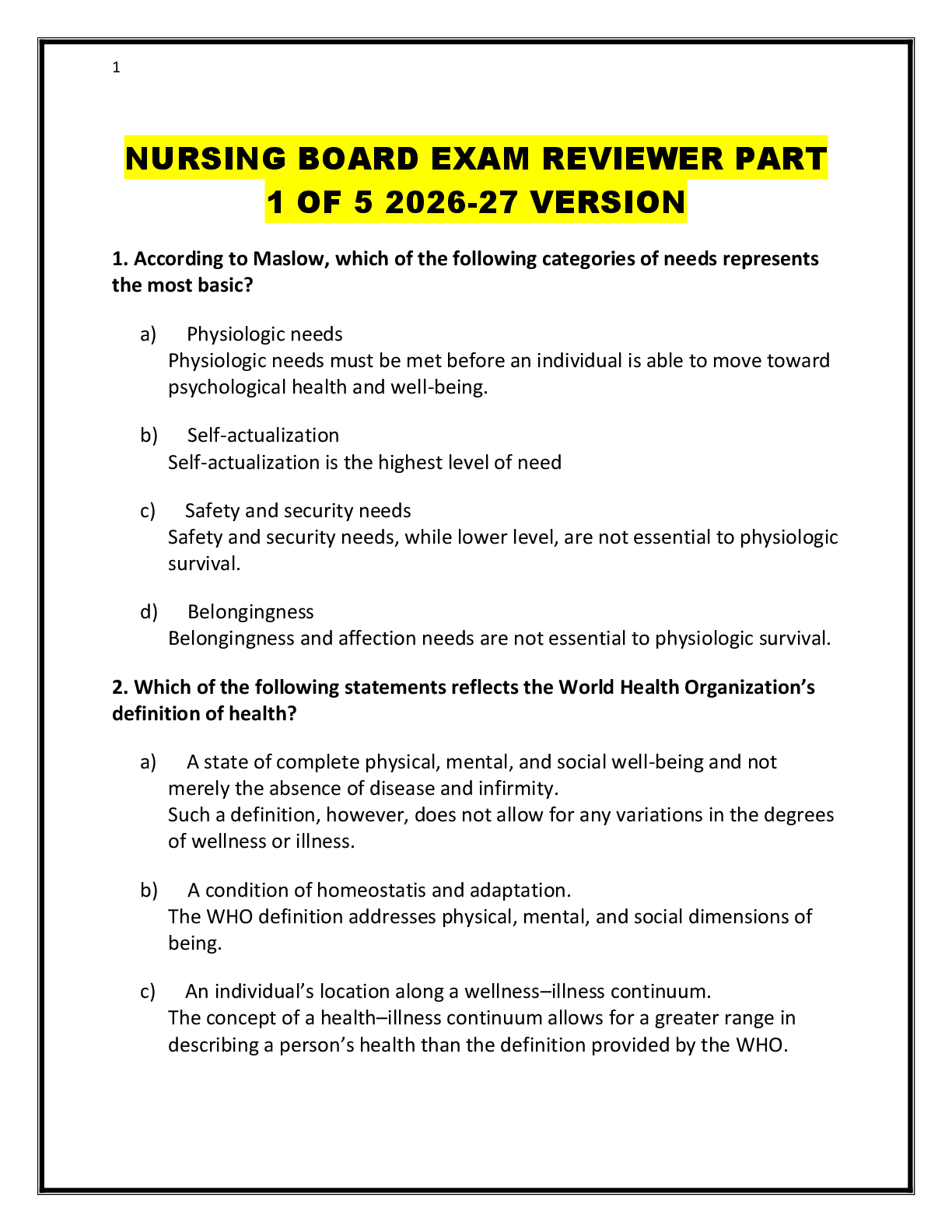NSG 3029 CH1 (8) QUIZ.
Chapter 08
1. A nurse researcher is conducting a retrospective study and using a chart review to collect data.
What type of data will be collected?
A. Primary data
B. Secondary data
C. Intern
...
NSG 3029 CH1 (8) QUIZ.
Chapter 08
1. A nurse researcher is conducting a retrospective study and using a chart review to collect data.
What type of data will be collected?
A. Primary data
B. Secondary data
C. Internal data
D. External data
2. A nurse researcher is conducting a survey determining students' level of comfort with clinical
skills. What type of data will be collected?
A. Primary data
B. Secondary data
C. Internal data
D. External data
3. A nurse researcher is measuring blood pressures of women who are diagnosed with preeclampsia. The sphygmomanometer has not been calibrated correctly, which results in inaccurate
readings. What type of error is this?
A. Sampling error
B. Random error
C. Systematic error
D. Non-systematic error
4. A researcher is interested in determining whether an instrument has stability over time. What
test should be conducted?
A. Test of internal consistency
B. Test-retest reliability
C. Test of concurrent validity
D. Test of content validity
5. A researcher is interested in determining whether the measurement of an instrument to be used
in a research study makes sense. What assessment should be made?
A. Test of internal consistency
B. Test-retest reliability
C. Test of concurrent validity
D. Test of content validity
6. A non-reproducible error that arises from a variety of factors in measurement and does not
affect the average scores but do affect the variation that exists around the average is called the:
A. Measurement error
B. Systematic error
C. Random error
D. Instrument error
7. The capability of an instrument to detect a disease if it is present is called:
A. Specificity
B. Sensitivity
C. Discriminate validity
D. Predictive validity
8. Examples of primary data collection methods include all of the following except:
A. Questionnaires
B. Observation
C. Chart review
D. Focus groups
9. Examples of secondary data collection methods include all of the following except:
A. Patient satisfaction surveys
B. Electronic medical record
C. Government databases
D. Patient physiologic measures
10. An advantage of using an existing instrument in research studies includes:
A. Development of a test blueprint
B. Ability to replicate a study
C. Comparison of results to previous study
D. Both B and C
[Show More]



